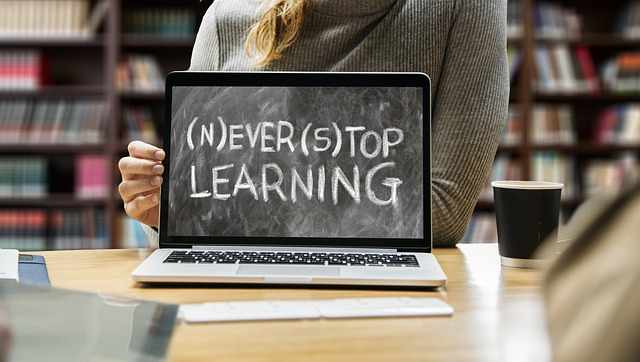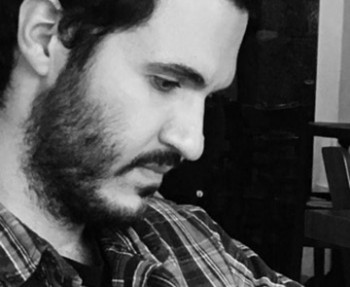Have you read for tomorrow?
How many times did we hear this phrase from our parents when we were students and went to school? In today's ever-growing society, the increase in knowledge takes place at a very fast pace and the demands of the labor market are constantly changing. Therefore, training and additional education are a constant priority for the modern worker. All the learning activities in which we participate throughout our lives and which aim to improve knowledge, skills and resources at a personal, social and professional level is called lifelong learning.
Lifelong Learning is now a permanent "tool" for upgrading professional skills with which the new generations of workers must live, while also adapting the old ones. Professions change at a high speed and any new knowledge is changed and replaced at a rapid rate compared to previous decades due to the introduction of new technologies and new knowledge into businesses. The faster the new skills are acquired, the faster the optimal productive mix of new investments with the labor force is achieved and the more competitive the produced product will be.
The term "Lifelong Learning (or Education)" refers to a philosophical concept according to which education is considered as a long-term process that starts from the birth of a person and continues throughout his life. This term covers all kinds, types and levels of education, formal and non-formal.
The objectives covered by Lifelong Learning for 'students' are the following:
• The creation of a positive attitude towards education and the promotion of equal access opportunities to citizen learning.
• The connection with the educational process of adults, who for many reasons did not manage to complete the compulsory education provided for by the Greek education system.
• Strengthening the possibilities of access to the labor market, as well as the maintenance of the job or professional development.
• Participation in the information society.
• Strengthening the ability to adapt to the cognitive demands of a constantly evolving socio-economic area of action for adults.
• Access to work, social, economic and cultural opportunities.
• The upgrading of working conditions, education and social status of vulnerable social groups of the population.
• The creative use of free time in the field of culture.
• Strengthening gender equality.
The training programs and teaching methods are adapted to the needs of the trainees and are implemented:
• In person (face to face),
• Remotely, through a special platform and appropriately adapted educational materials and procedures, which release from space and time and
• Through a Mixed method with a combination of live and distance learning.
Continuous learning at all ages and in all circumstances has many benefits. The ability and potential of people to learn begins at birth and extends throughout life with the main goal of self-development. Humans are like plants, we develop physically, mentally, emotionally, mentally to achieve satisfaction from our life in various ways and in various areas. Some know it and already follow it in their life while some others postpone it for various reasons. Below are the main reasons why lifelong learning deserves to become an integral part of our lives:
• Self knowledge
All or most of us have a real or imagined list of things we wish we knew or something else we wish we had studied. And this list exists for everyone, as it is the most natural thing in life to want to learn new things and evolve. Man has the need for continuous improvement and lifelong learning guides our steps on the path to self-improvement. It opens our horizons, shows us our personal limits and how to overcome them, if we want to. The sense of satisfaction at the completion of learning boosts our self-confidence and motivates us to continue discovering ourselves and our potential.
• Adaptation to the new labor market
Society and work are changing and we need to be able to adapt to the new data. Few jobs now require relatively static knowledge. Most young people change positions and objects several times in their lives and there are many who consciously change careers. Even those who remain in the same profession are seeing the nature of their work transform, change and evolve. For this reason, flexibility is required on the part of the employee, which he finds through continuous learning. So employees can keep their jobs, change profession if that is what they wish or if the given circumstances dictate, to develop professionally. Lifelong learning and continuous self-improvement offer more options in and out of work. In recent years more and more people renew, upgrade and update their knowledge and skills in order to join or rejoin the labor market. Of course, this type of learning is not simply about building skills within the narrow confines of a certain profession. It's not just about dry specialization, but about gaining a broader perspective and using educational experiences to shape new ideas and innovations.
• Healthier brain
The most important thing in life is to keep your mind young and this is achieved through constant education and knowledge. And scientists consistently emphasize that a high level of education and training is associated with better cognitive and intellectual functions at older ages, that is, with improved memory, attention, perception, problem-solving, decision-making, and language production and comprehension.
• Enhancement of socialization
From the moment of birth, we absorb knowledge from our parents, make friends and relationships, have conversations with strangers or acquaintances, exchange opinions with colleagues, analyze and observe. All of the above is part of lifelong learning. Purposeful learning in adulthood sparks social ties and acquaintances with people of the same or completely different philosophy and way of thinking because we want to learn with them and about them.
In general, education and knowledge attract people around us, the topics we can discuss are enriched, just as our personality is enriched, making us interesting to others and enhancing our socializing skill. Individuals become active citizens with what this entails for the benefits of a society such as in the development of the ability to actively participate in society with critical thinking and a creative disposition.

 English
English
 Ελληνικά
Ελληνικά Русский
Русский





 Posted by
Spyros Papapetros
Posted by
Spyros Papapetros






